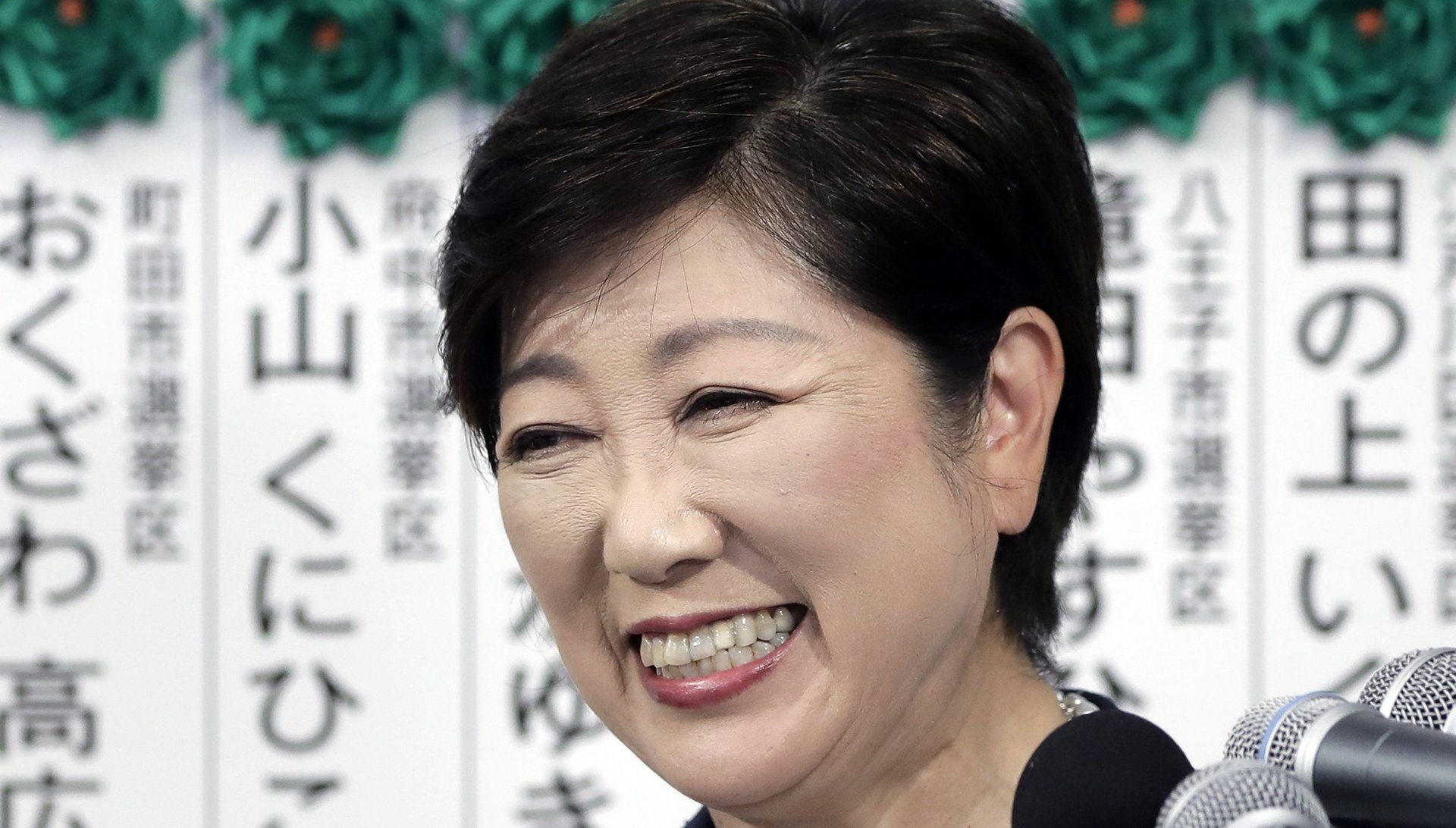Japan’s most powerful woman is messing up prime minister Shinzo Abe’s script
Japanese prime minister Shinzo Abe has never been more secure in his power. The main opposition party is in total disarray, and many voters—if they vote at all—would rather stick with the devil they know in a world of flux. It’s partly why he decided to call a snap general election for next month.


Japanese prime minister Shinzo Abe has never been more secure in his power. The main opposition party is in total disarray, and many voters—if they vote at all—would rather stick with the devil they know in a world of flux. It’s partly why he decided to call a snap general election for next month.
That was until popular Tokyo mayor Yuriko Koike, 65, stepped into the ring and announced the formation of a new political party to go up against Abe’s long-dominant Liberal Democratic Party (LDP), which despite its name is a conservative group. Koike, an Arabic-speaking former news anchor who was also briefly the country’s first-ever female defense minister, became the mayor of Tokyo last year. In addition to running the world’s largest city-economy, she’s now hoping to transform her electoral success in Tokyo to the national level with her new Party of Hope (Kibo no To, in Japanese), which will be a “tolerant centrist party” (paywall).
The LDP was crushed by Koike’s Tokyo Citizens First party in the Tokyo Metropolitan Assembly election in July; her new party will field candidates in all constituencies in not only Tokyo, but across the country. Koike’s new party has already attracted defectors not only from the main opposition Democratic Party (DP), but also one from Abe’s own LDP.
Before Koike’s new party was announced, Abe looked set to use what would almost have been a guaranteed third term to push forward some of the key policies on his agenda, chiefly a revision of Japan’s pacifist constitution by the end of the year. Abe has also said that he is seeking a broader mandate from the public in a time of “national crisis,” citing the threat from North Korea and Japan’s ultra-low birthrate.
So weak is Japan’s opposition that even in a year of almost perpetual scandal for Abe and his administration—including questions and public anger over Abe’s wife’s ties to a school in Osaka that secured a favorable land deal—Japan’s voters see no plausible alternative to Abe. If he wins the next election and serves a full third term, he would become Japan’s longest-serving post-war prime minister.
The DP enjoyed a brief moment of excitement when it elected a woman (also a former newscaster) Renho Murata as its leader in September last year. However, she stepped down after the DP’s terrible performance in the Tokyo elections in July.
Abe and his coalition partners cleared a two-thirds majority in the upper house of the Diet, Japan’s bicameral legislature, in elections in July last year. Abe and his coalition partners already had a two-thirds majority in the lower house from the 2014 general elections. Though he’s unlikely to repeat the same stellar result this time, the LDP is still expected to win a majority of seats. Abe said he would resign if he failed to get a majority.
According to the latest poll by Kyodo news, a majority of voters don’t agree that Abe should be seeking a new mandate or dissolving the lower house of parliament—still 27% said they would vote for the LDP, versus just 8% for the DP and 6% for Koike’s new party. More than 42% said they were undecided.
“If he loses a significant number of seats, particularly with the opposition in the midst of a significant reorganization, Mr. Abe will have only reinforced the impression that his time is up,” wrote Tobias Harris (paywall), a fellow at the Sasakawa Peace Foundation in Washington DC.
Koike has until Oct. 22 to gain ground, much more ground, on the prime minister.